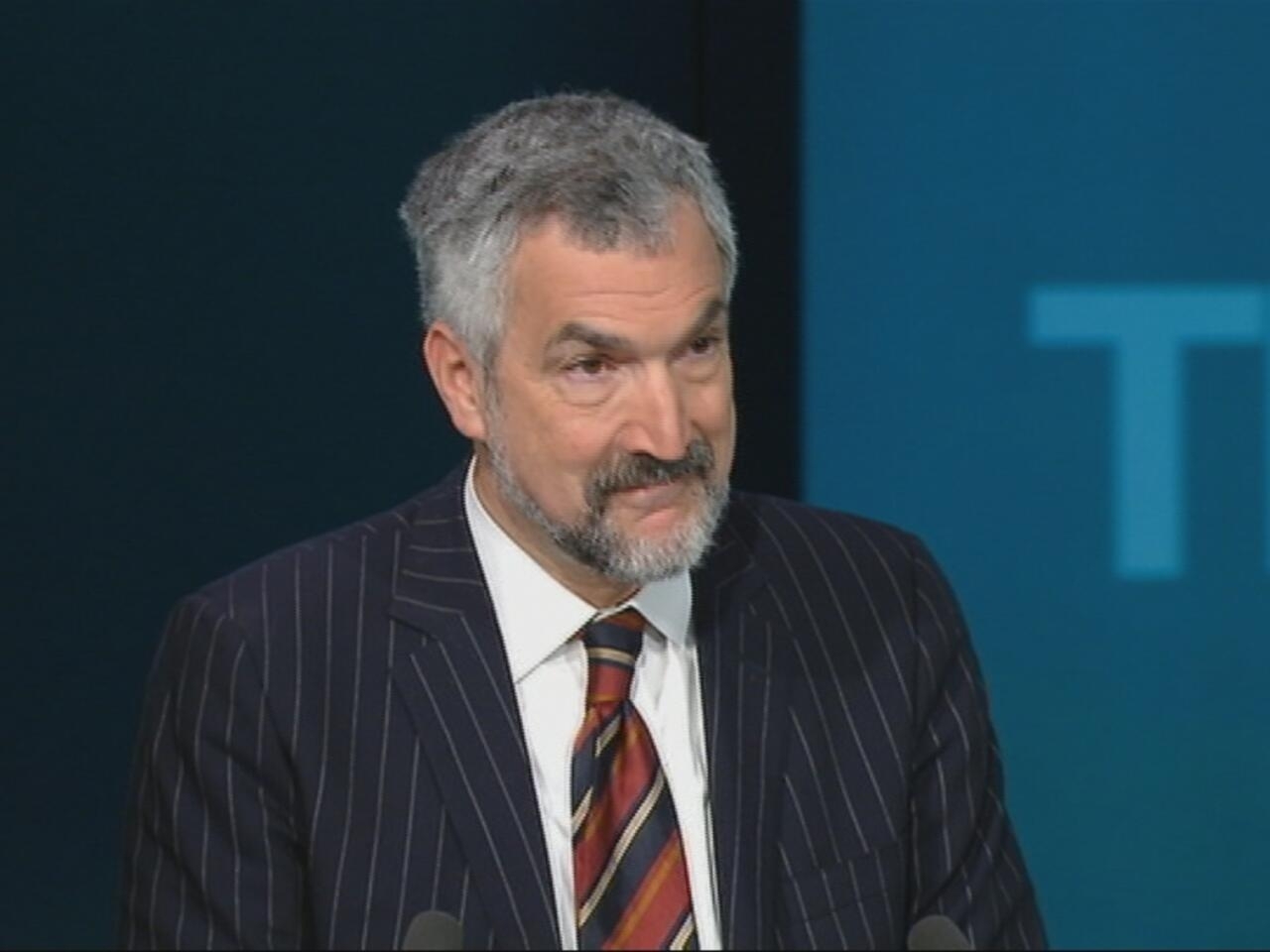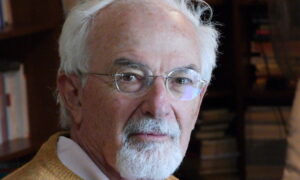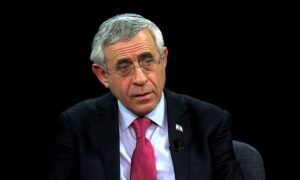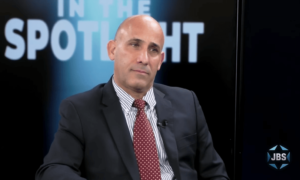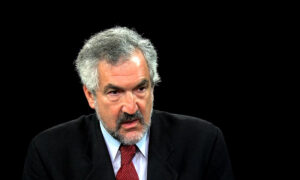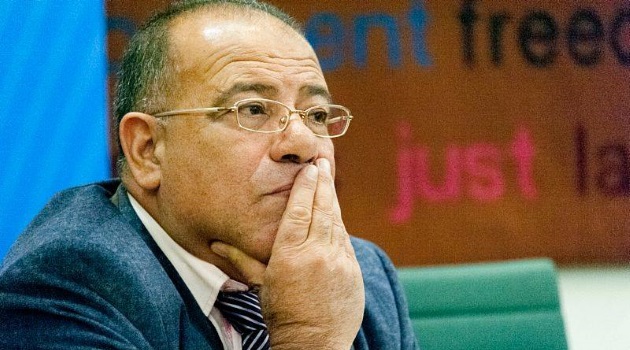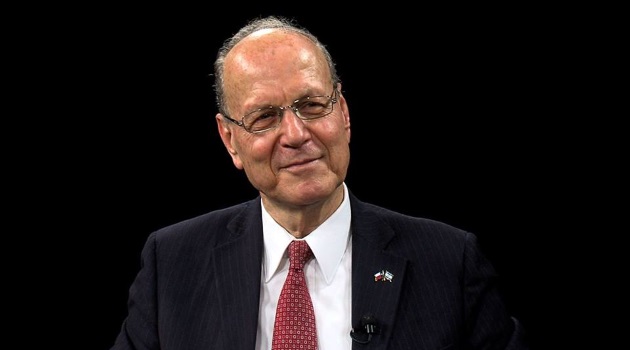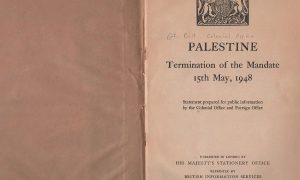After almost four months of war, we asked Daniel Pipes, president of the Middle East Forum, one of the leading international experts on the Middle East, and a regular guest of L’Informale, for his take on the current situation.
How should Israel conduct its war on Hamas?
I hope the Government of Israel will focus on two key issues, the destruction of Hamas’ power and the establishment of a decent new regime of Gazans ruling Gaza under Israeli supervision. More succinctly: win the war, win the peace. Everything else – domestic politics, hostages, international shipping – matters less.
Freeing the hostages and toppling Hamas appear to be mutually incompatible aims. Are they?
Yes, completely incompatible. This contradiction points to the sentimentality of Israeli politics, the softness under the hard shell. Israel’s enemies understand this and therefore focus on capturing its citizens to trade back. Jonathan Pollard goes too far when he called for “imprisoning to silence certain members of the hostage families” if their demands interfere with the war effort, but I sympathize with his frustration. I wish the Israeli government would present the defeat of Hamas as the best way to win the hostages’ return.
A recent report states that after 114 days of war, 80 percent of Hamas tunnels are still intact. This implies that the IDF needs plenty of time to destroy them all. What does that mean?
Note the contrast between 1967 and 2023-24. In the first case, a rapid Israeli battlefield victory meant a Egyptian retreat and full control of Gaza within hours; in the second, every meter must be fought over, requiring months. The Israelis have only themselves to blame for leaving Gaza in 2005 and then allowing Hamas to entrench itself as it did. The longevity of this conflict harms both Israel’s deterrence and emboldens its critics. The only solace from Israel’s point of view is that Oct. 7 and its aftermath have awakened the country to its failed security establishment, increasing the chances to fixing it.
You told L’Informale in late November 2023 that the most probable outcome of Israel’s war on Hamas will be a “half failure.” Do you stick by that opinion?
Yes. The war has inspired very different interpretations; note in particular Shay Shabtai’s optimistic view. “Half failure,” however, sounds about right when one takes the whole of the situation, including Hezbollah, the Houthis, Türkiye, Iran, the global Left, and beyond. The repercussions of this conflict have reached further than anything I imagined, from the presidency of Harvard University to the price of commodities.
Caroline Glick writes that “For a generation, the Holy Grail of [Israel’s] General Staff has been to reject the very concept of victory.” To what extent is she right?
Caroline has a way with words. This argument lies at the center of my forthcoming book, “Israel Victory: How Zionists Win Acceptance and Palestinians Get Liberated,” but I’d put it less strongly. Avoiding victory is not the General Staff’s Holy Grail but its learned defensive posture. It can be unlearned.
She, Efraim Karsh, Mordechai Kedar, and Martin Sherman all agree that the two-state solution is both dangerous and dead. Do you agree with them?
Not at all. I see a Palestinian state as nearly inevitable in the long run. Therefore, they are fighting a hopeless rear-guard battle. Rather than resisting the two-state solution, I invite them to join me in assuring that it takes place only after the Palestinians have, in a protracted and consistent way, shown they accept the Jewish state of Israel – in other words, once they have convinced Israelis of their defeat. Of course, that is generations away. Let’s put the plan on ice till then.
If Israel does not destroy Hamas, it will claim victory, present itself as the anti-Zionist leader, which will embolden Hezbollah and Iran, leading to another war. Do you agree?
Yes, to the extent Hamas plausibly claims success, this increases Islamist confidence and spells further trouble for Israel. Note that Hamas has already claimed victory: the Wall Street Journal reports that Yahya Sinwar, the mastermind of the Oct. 7 massacre, “has told mediators that Hamas has essentially won the war.” This comes as no surprise, for Arab leaders routinely do so, no matter the actual outcome.
The Biden Administration warns Israel about civilian deaths, demands that it provide aid, and seeks to limit its actions in Lebanon. Has the time come for Israel to become more autonomous from the United States?
Of course, Israelis would like to unburden themselves of American hectoring. But the U.S.-Israel bond is the family relationship of international politics and so it will remain. Americans interfere in Israeli politics, Israelis interfere in U.S. politics. This long-standing reality has positives and negatives for both sides. They need to accept it, work with it, make the best of it.
How important do you see the International Court of Justice decision that Israel shall “take all measures within its power to prevent the commission of all acts” such as causing serious bodily or mental harm or killing Palestinians”?
This judgment is one round in a vast clash between pro- and anti-Israel forces, each striving to win public opinion to its side. But I consider the importance of this battle overrated. Around the world, most people who care about international politics have by now decided where they stand on Israel and the Palestinians, so the pool of undecideds gets smaller by the day. I therefore do not think that a decision like the ICJ’s – or the U.S. Senate’s voting 100-0 to show solidarity with Israel – matter that much. The actual battlefield matters more than opinions about it.

